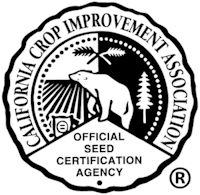Sunflower Standards Change
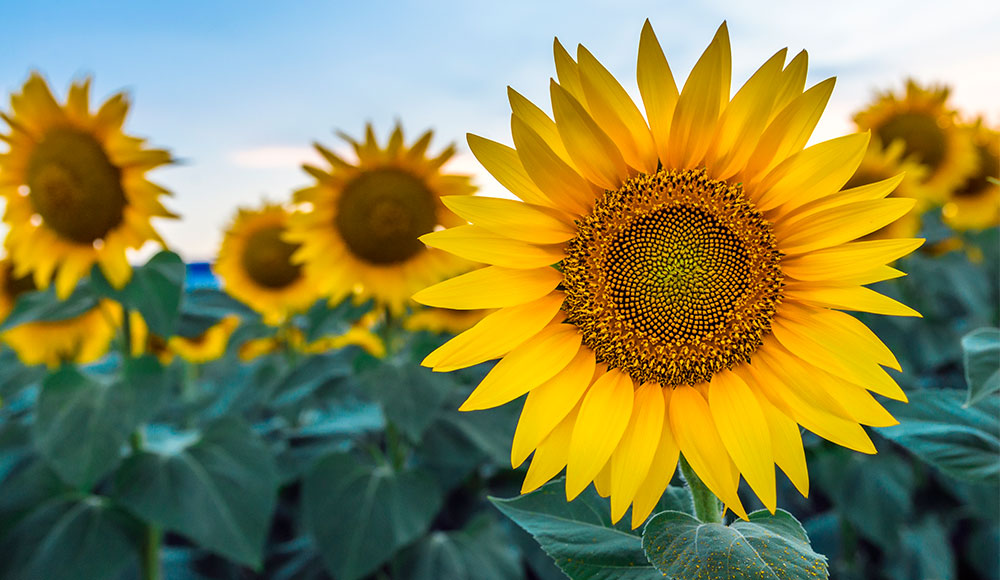 In response to concerns raised by the sunflower industry, the CCIA has relaxed the standard for pollen shedding females in certified sunflower seed fields. The previous standard was 4:1,000. OECD standards allow for no more than 5:1,000 pollen shedding females. The AOSCA Yellow Book standards do not have a set level for pollen shedding females. The presence of pollen shedding females in fields intended for hybrid oil production is not a large concern for customers buying the seed. The new pollen shedding female standard is now 5:1,000. This change was approved by the Board of Directors at the February meeting.
In response to concerns raised by the sunflower industry, the CCIA has relaxed the standard for pollen shedding females in certified sunflower seed fields. The previous standard was 4:1,000. OECD standards allow for no more than 5:1,000 pollen shedding females. The AOSCA Yellow Book standards do not have a set level for pollen shedding females. The presence of pollen shedding females in fields intended for hybrid oil production is not a large concern for customers buying the seed. The new pollen shedding female standard is now 5:1,000. This change was approved by the Board of Directors at the February meeting.
Directors Update
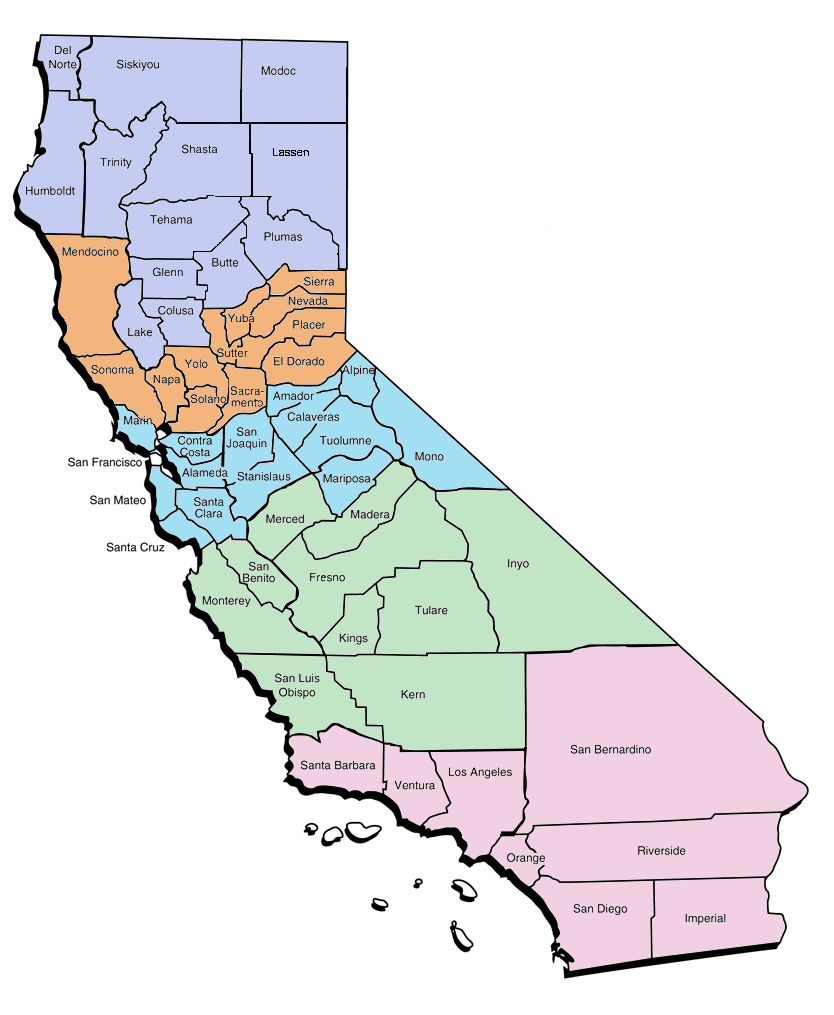
The following Directors and UC Advisory Committee members were seated at the February meeting of the CCIA Board of Directors.
New Board officers were installed at the February meeting:
Lance Atkins - President
Kurt Rubin – Vice President
Glenn Powell – Treasurer
Bob Baglietto – Past President
Elected Directors: Appointed Directors-at-large:
District I - Kurt Rubin Lance Atkins
District II - Glenn Powell Glenn Hawes
District III - Bob Baglietto Tom Hearne
District IV - Brice Luappe Frank Saviez
District V - Chuck Schonauer Nathan Williams
Agency Representatives
Agricultural Commissioners Association - Greg Hinton
California Seed Association - Todd Rehrman
California Department of Food & Agriculture - Brenda Lanini
UC Cooperative Extension - Rachael Long
California Farm Bureau Federation - Rich Matteis
UCD Department of Plant Sciences - Gail Taylor
University Advisory Committee
UCD College of Ag & Environmental Sciences – Anita Oberbauer
UCD Seed Biotechnology Center – Kent Bradford
UCD Foundation Seed Program – John Palmer
New Website Design
We hope you are enjoying the new look of the CCIA website. The site offers everything available right on the home page! The home page url remains the same – ccia.ucdavis.edu – but all other links and bookmarks will need to be updated.

Hemp Update
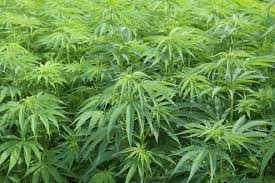 Section 10113 of the Agricultural Improvement Act 2018 [aca. Farm Bill 2018) removed hemp from the Controlled Substances Act under the purview of the DEA and placed it under the USDA’s responsibility and defines it as an agricultural crop. It also removed Cannabidiol (CBD) and oil extract from hemp plants from the DEA’s purview; removed hemp production from “Pilot Research Programs”; stated that movement of hemp seed across state lines is legal; and retained FDA’s purview for the use of hemp-derived CBD in food and drug products. It also required that each State or Indian tribe that intends to produce hemp needs to submit a State Plan to the USDA that addresses seven points to show their oversight responsibility for the crop. The USDA has indicated that they will produce a Guidance Document for states to follow in drafting such State Plans. Meanwhile, the states intending to produce Hemp under the USDA’s oversight will continue such production as they did under the Pilot Research Program phase in lieu of the USDA’s approval. In California the amended Industrial Hemp Farming Act 2018 instituted a ‘Pilot Research Program’ under which hemp production will be initiated in 2019. The CDFA has nearly completed the regulations for hemp production. Once the Agricultural Commissioners (in counties that will allow the production of hemp) begin issuing registrations, commercial plantings of hemp may begin. It is hoped that sampling and testing regulations from the CDFA will be approved during the 2019 growing season.
Section 10113 of the Agricultural Improvement Act 2018 [aca. Farm Bill 2018) removed hemp from the Controlled Substances Act under the purview of the DEA and placed it under the USDA’s responsibility and defines it as an agricultural crop. It also removed Cannabidiol (CBD) and oil extract from hemp plants from the DEA’s purview; removed hemp production from “Pilot Research Programs”; stated that movement of hemp seed across state lines is legal; and retained FDA’s purview for the use of hemp-derived CBD in food and drug products. It also required that each State or Indian tribe that intends to produce hemp needs to submit a State Plan to the USDA that addresses seven points to show their oversight responsibility for the crop. The USDA has indicated that they will produce a Guidance Document for states to follow in drafting such State Plans. Meanwhile, the states intending to produce Hemp under the USDA’s oversight will continue such production as they did under the Pilot Research Program phase in lieu of the USDA’s approval. In California the amended Industrial Hemp Farming Act 2018 instituted a ‘Pilot Research Program’ under which hemp production will be initiated in 2019. The CDFA has nearly completed the regulations for hemp production. Once the Agricultural Commissioners (in counties that will allow the production of hemp) begin issuing registrations, commercial plantings of hemp may begin. It is hoped that sampling and testing regulations from the CDFA will be approved during the 2019 growing season.
The CCIA started positioning itself for hemp seed production in 2017 as soon as the California Industrial Hemp Farming Act became effective. Initial regulations required that all hemp production in the state should be from approved varieties from the AOSCA and OECD international seed certification agencies. The CCIA developed the List of Approved Varieties and it was approved by the CCIA Board on 22nd February, 2018. The CCIA also developed standards, which meet or exceed those of AOSCA, under which certified hemp seed must be produced in California. However, there was a realization by the emerging hemp industry of a shortage of Certified planting seed of the types of varieties in demand. The Industrial Hemp Advisory Board therefore decided to relax the requirement for approved varieties and the planting of Certified seed is no longer a requirement.

AOSCA is in the process of developing a Hemp Variety Certification Application but until it is effected the CCIA is currently accepting applications for variety certification. AOSCA is also developing a Hemp Variety Review Board that will review all hemp variety applications in future. Growers in California are interested in producing hemp for fiber, for seed or for both but especially for Cannabidiol (CBD). Unfortunately, there are few approved varieties for CBD production nation-wide. It is expected that CBD production will be mostly from clones and feminized seed. The CCIA program is therefore also interested in certifying varieties for clonal and feminized seed propagation and production. Our programmer has been working on creating the necessary applications for ordinary seed production but also for clonal and feminized seed production systems. We are in the process of developing standards for these production systems.
Seed Sampler Training Program Update

The purpose of the seed sampler training workshops that are being conducted by the CCIA, under the oversight of the Association of American Seed Control Officials (AASCO), is to ensure that representative samples are collected for seed testing. Seed sampling is an important and the very first step to conducting a good seed test. A representative seed sample is that which provides proper connection between the seed lot awaiting sale at the warehouse and the sample that is being tested at the seed laboratory to ensure that the test results accurately reflect the quality of the seed lot. The sampling principles, methods and equipment to uniformly obtain a representative seed sample were developed by the Association of Official Seed Analysts (AOSA) and are contained in the Federal Seed Act. They form the basis of the certified seed sampler training.
The first seed sampler training workshop in 2019 was conducted at the Parsons Seed Certification Center (CCIA) at University of California, Davis on 7 March for the Sacramento Valley samplers. The hands-on practice was held at the UC Davis Foundation Seed Warehouse in the afternoon.
The second training was conducted at the Agricultural Commissioner’s office in Fresno on 14 March for the Central Valley samplers. The hands-on practice was conducted at the Winfield United warehouse in Kerman, CA.
The third workshop was conducted at the Desert Research and Extension Center (DREC) in Holtville, CA on 28 March for the Imperial Valley samplers. The hands-on practice was held at the same location but we are grateful to the Imperial Valley Milling for supplying a bin and pallet of seed for the practice. We hope to conduct a certified seed sampler training workshop for sunflower seed samplers and another training in the central coast area during this spring. We would like to invite samplers to register for these workshops when the announcements come out or to get in touch with the AASCO Accredited Seed Sampler Trainer [Alex Mkandawire at abmkandawire@ucdavis.edu].
Pre-Variety Germplasm Update
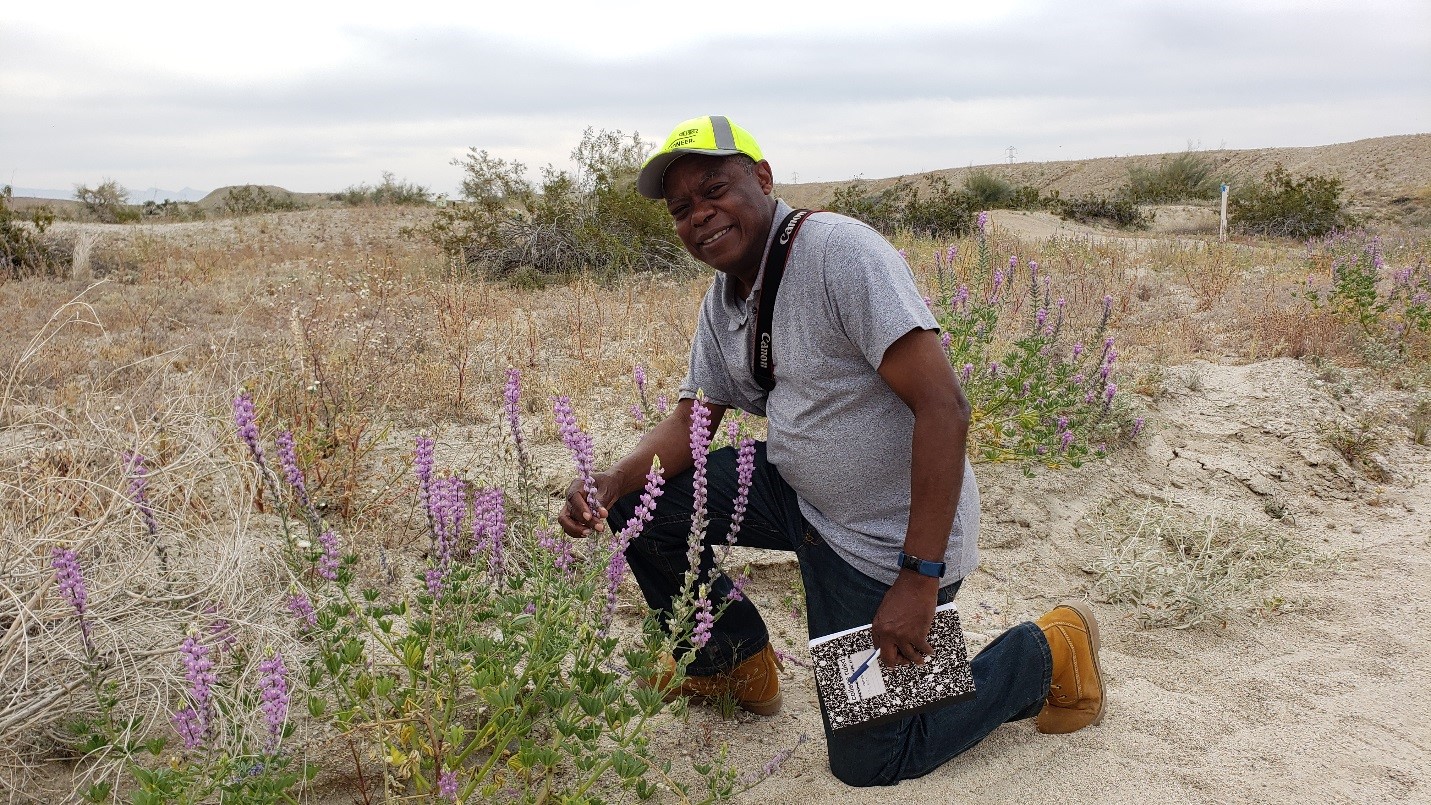
The PVG Program continues to grow in California. The species whose seeds are being collected are used in rehabilitating degraded lands due to construction or fires. The intention of the industry is to re-plant these areas with seeds of species that grow within the same original areas. As a result collections have been done in the Sierra Nevada Mountains, in the Sacramento Valley, and in the coastal areas. The collections have continued to expand to the San Joaquin Valley area and the Lower Desert area.
The CCIA would like to stream-line the collection process as follows:
- At least two months prior to seed collection the applicant should inform the CCIA of the impending collection, especially if the species is not on the drop-down list under PVG. This will ensure that the CCIA is able to develop standards for that particular species. Currently the following species are in the database: Alkali Sacaton, Blue Wild Rye, Brome, California Oatgrass, California Melicgrass, Common Yarrow, Dwarf Barley, Great Valley Gumweed, Meadow Barley, Meadow Foam, Meadow Foxtail, Purple Needlegrass, Sagebrush species, Seaside Brome, Small Fescue, Tufted Hairgrass and Western Blue-eyed Grass.
- The applicant should download the Pre-Collection Site Inspection Report Form from the CCIA website under PVG in QA Programs, and fill it out one sheet per species. Up to three sites for collection of a particular species may be indicated on the same sheet.
- The applicant should then create an application on the CCIA website under their account just like that as for producing certified seed. The applicant should attach the Pre-Collection Site Inspection Report.
- The applicant should submit the application online to the CCIA.
Upon completing the Pre-Collection Site Inspection, a CCIA representative will complete the inspection report, sign the report, and attach it to the application. A copy will be sent to the applicant. If needed, the applicant will create a further application later to produce G1 seed and will attach the same signed form for G0 to the application as a formal identification of the seed.
